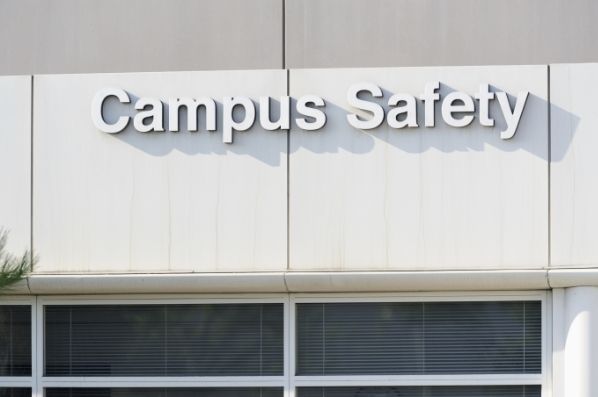We've already blogged on the Safe Campus Act, which was put forth by four GOP House members and which seeks to promote two imperatives: justice for victims of sexual assault and due process for those who are accused. Justice requires both, given that sometimes people are unjustly accused to sexual assault. We don't like to think about it, but false accusations do happen.
The Examiner's Ashe Schow has an article on an opponent of the Save Campus Act:
An opponent of a new bill aimed at providing due process rights to students accused of sexual assault disparaged the thought of such constitutional rights because schools "must prioritize the needs of survivors first and foremost."
That's all well and good, but one does not know whether someone is truly a "survivor" unless his or her story can hold up to scrutiny, something deliberately absent from current campus hearings. But that doesn't seem to matter to Sarah Merriman, a spokeswoman for SAFER Campus, who told the Washington Post why she opposes the "Safe Campus Act."
"American college culture often paints rape on campus as a youthful indiscretion instead of the deliberate violent act that it is, and it is not the survivor's job to 'save' the assaulter from criminal prosecution," Merriman said. "Though there are many college faculty and administrators that have the best interests of their students at heart, SAFER cannot agree that leaving judicial proceedings, and especially the standard of evidence, completely up to the school is best written into law."
First of all, I've never met anybody who saw rape as "a youthful indiscretion." Have you? It is despicable to paint people who believe in due process as oblivious to the horrendous reality of rape. But we see a lot of this kind of arguing nowadays: simply paint those who disagree with you as monsters and that's half the battle.
Second, the Safe Campus Act does not attempt to "save the assaulter from criminal prosecution." Rather it seeks to determine whether the accused is indeed guilty before punishing him (and it is generally a him). Is that too complex for Ms. Merriman to grasp? Punish guilty, not innocent. This is not exactly an abstruse concept.
Many activists such as Ms. Merriman want to leave the handling of rape, a crime, up to college tribunals instead of the legal process. They may believe that it is easier to declare somebody guilty if the a tribunal rather than the police and a judge handle the matter. They may also believe that going to the police can be harder than lodging a charge and having it considered by a tribunal. Both are probably true, but this does not mean that an accusation, which can ruin somebody's life, should not not be investigated through the criminal justice system rather than a campus tribunal.
Schow writes:
Merriman claims that schools "want to preserve their perfect public image" by ignoring rape accusations. That may have been the case years ago, but the incentives have been flipped, and schools are now looking to expel students to prove to the Department of Education that they take sexual assault seriously. That witch hunt mentality has prompted more than 70 accused students to sue their schools for discrimination.
Merriman suggests that schools don't need due process because "survivors" (using the term based solely on accusations and without evidence) have it rough.
"We are not at a point to analyze 'due process,' when many survivors are publicly shamed on their campuses, when charges against assaulters can be dismissed out of hand by administrators, when an assaulter is allowed to sit across from a survivor and shout down their story," Merriman said.
We are exactly at a point to analyze due process when many accused students are publicly shamed on their campuses (even after they have been found "not responsible" by their schools and police investigations), when the word of an accuser is taken at face value despite evidence to the contrary and when accused students (Merriman calls them "assaulters," again, without evidence) aren't allowed to meaningfully cross-examine an accuser who may be lying.
Schow concludes:
If opponents of the bill, like Merriman, think due process is such a hindrance to justice, why aren't they calling for its removal.
Please. Don't give them any ideas.


